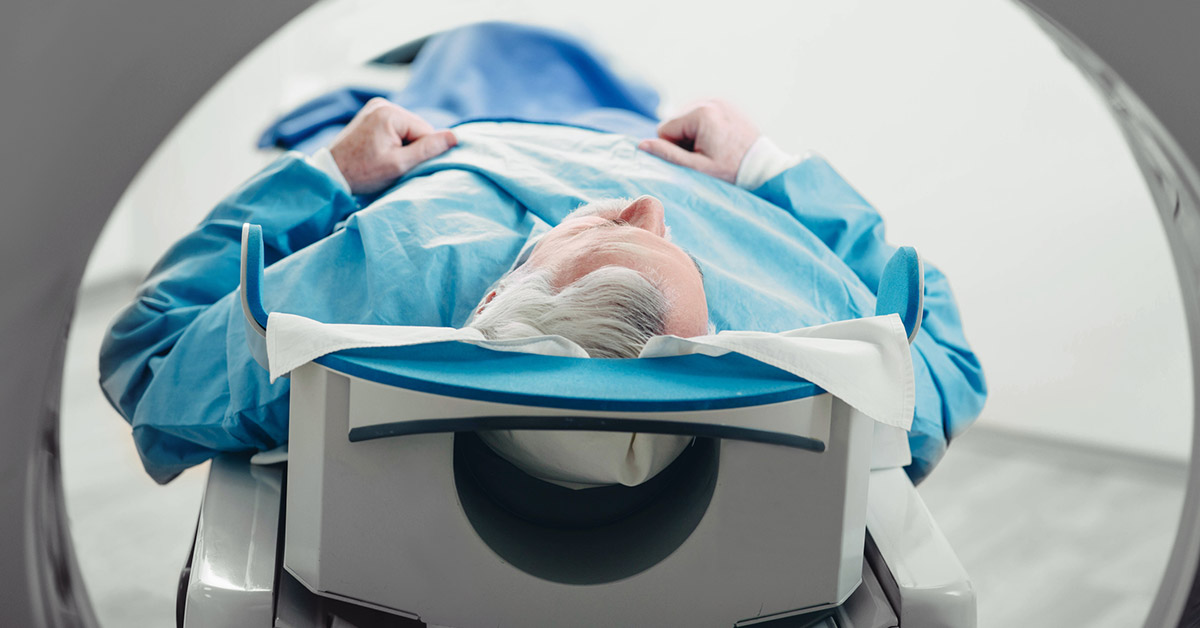Dementia in older adults is most often caused by Alzheimer’s disease, but not always. To help health care providers correctly diagnose different types of dementia, researchers with the School of Public Health (SPH) and the Minneapolis VA Health Care System recently conducted a review of previously published studies to identify the kinds of body scans and tests that could increase accuracy in diagnosing patients.
The study team was from the school’s Minnesota Evidence-Based Practice Center and led by Medical School Professor Howard Fink. Their research findings were recently published in the Annals of Internal Medicine.
Improving Diagnosis Accuracy
Dementia is a progressive, incurable disease. However, correctly distinguishing between Alzheimer’s and other causes of dementia may be important because future treatments may work differently or more effectively for certain types of disease. Currently, clinical evaluations for distinguishing between Alzheimer’s and other causes of dementia are only about 75% accurate.
“The accuracy rate is for evaluations conducted in research settings,” says Fink. “But accuracy is probably even lower in typical primary care settings and in patients with milder symptoms.”
To make diagnosis easier, the researchers conducted a review of medical literature on the accuracy of biomarker testing, such as brain scans and the analysis of body fluid samples, for identifying Alzheimer’s in older adults with dementia. Overall, they found that biomarker testing showed promise because research has shown the addition of certain brain imaging and cerebrospinal fluid (CSF) tests to a clinical evaluation may improve the accuracy of clinical diagnosis.
The review analyzed 24 studies evaluating the accuracy of brain imaging, CSF testing, or blood tests. All of the studies sought to determine the accuracy of biomarker tests in living patients by comparing the biomarker results with brain autopsy results obtained after the patients died.
The biomarkers were compared with autopsy because brain autopsy is still the gold standard method for diagnosing Alzheimer’s disease.
“The studies in our review had to look at how accurate the biomarker tests were for distinguishing between types of dementia,” says Fink. “A small number also looked at whether the biomarker test added value to the clinical evaluation in patients with dementia because if they don’t improve accuracy on top of the clinical evaluation, there seems little justification for getting one of these tests.”
The biomarker tests that showed accuracy in identifying Alzheimer’s disease compared to a different cause of dementia included:
- Amyloid PET and medial temporal lobe atrophy on MRI brain scans, which each classified about 90% of study patients correctly;
- 18F- FDG PET and SPECT brain scans, which classified between 80% and 85% of study patients correctly;
- Single CSF tests and ratios of one CSF test to another, which classified between 64% and 78% of study patients correctly.
In two small studies, the researchers found that among patients with dementia who received a diagnosis of dementia type (Alzheimer’s vs. non-Alzheimer’s) by clinical evaluation, either amyloid PET or FDG PET improved accuracy by correctly reclassifying a substantial portion of patients who had been miscategorized by their clinical evaluation. A third study reported that a combination of CSF tests improved accuracy by correcting some clinical miscategorizations between Alzheimer’s and frontotemporal dementia.
Fink cautioned that the accuracy of the biomarker tests reported in these studies are likely to be higher compared to how they would actually perform in typical clinical settings. The study results could have been biased by which study participants were not analyzed, and at least some of the methods used may not be feasible outside of research settings.
“Currently, there are no treatments that modify the course of dementia, and in particular, there are no treatments that have different effects between these dementia types, which means these tests may have limited relevance for clinical practice at this point,” says Fink. “But our findings could help other researchers more precisely target their studies toward the underlying causes of dementia, which could eventually lead to better treatments.”

